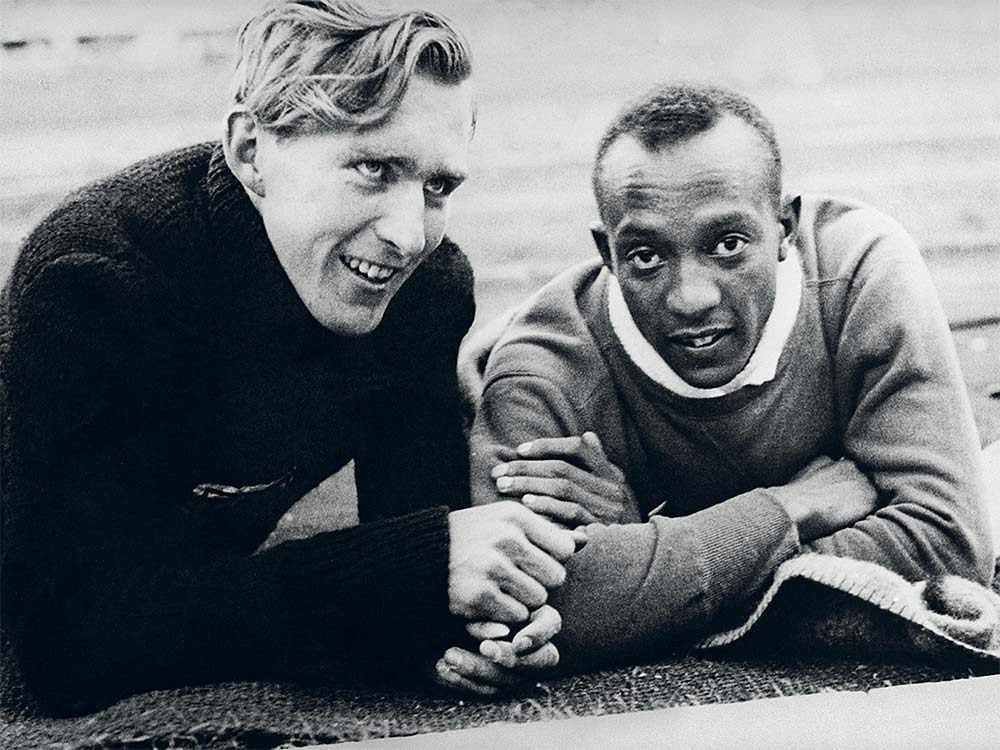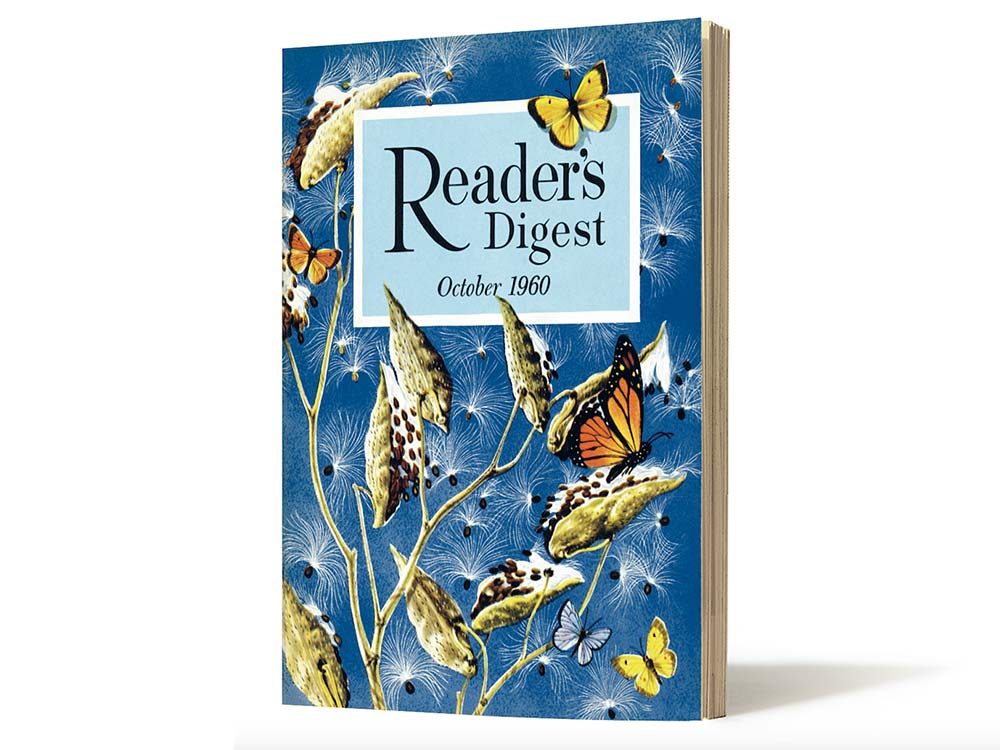
Jesse Owens: My Gold Medals “Wouldn’t Come Close to Outshining the 24-Carat Friendship”
It was the summer of 1936. The Olympic Games were being held in Berlin. Because Adolf Hitler insisted his country’s athletes were members of a “master race,” nationalistic feelings were at an all-time high.
I wasn’t too worried about all this. I’d trained and sweated for six years with the Games in mind. While I was going over on the boat, all I could think about was taking home one or two of those gold medals. I particularly had my eye on the running broad jump. A year before, as a sophomore at Ohio State University, I’d set the world record of 8.13 metres. Everyone kind of expected me to win that event hands-down.
I was in for a surprise. When the time came for the broad-jump trials, I was startled to see a tall boy hitting the pit at almost 7.9 metres on his practice leaps! He turned out to be a German named Luz Long. I was told that Hitler had kept him under wraps, evidently hoping to win the jump with him.
I guessed that if Long won, it would add some support to the Nazis’ Aryan-superiority theory. After all, I am Black. A little hot under the collar about Hitler’s ways, I determined to go out there and really show der Führer and his master race who was superior and who wasn’t.
An angry athlete is an athlete who will make mistakes, as any coach will tell you. I was no exception. On the first of my three qualifying jumps, I leaped from several centimetres beyond the takeoff board for a foul. On the second jump, I fouled even worse. Did I come 6,000 kilometres for this? I thought bitterly, To foul out of the trials and make a fool of myself?
Walking a few yards from the pit, I kicked at the dirt in disgust. Suddenly, I felt a hand on my shoulder. I turned to look into the friendly blue eyes of the tall German broad jumper. He had easily qualified for the finals on his first attempt. He offered me a firm handshake.
“Jesse Owens, I’m Luz Long. I don’t think we’ve met.” He spoke English well, though with a German twist.
“Glad to meet you,” I said. Then, trying to hide my nervousness, I added, “How are you?”
“I’m fine. The question is: how are you?”
“What do you mean?” I asked.
“Something must be eating you,” he said. “You should be able to qualify with your eyes closed.”
“Believe me, I know it,” I told him—and it felt good to say that to someone.
For the next few minutes, we talked. I didn’t tell Luz what was “eating” me, but he seemed to understand my anger, and he took pains to reassure me. Although he’d been indoctrinated in the Nazi youth movement, he didn’t believe in the Aryan-supremacy business any more than I did. We laughed over the fact that he really looked the part, though. He had a lean, muscular frame, blue eyes, blond hair and a handsome, chiselled face. Finally, seeing that I had calmed down somewhat, he pointed to the takeoff board.
“Why don’t you draw a line a few centimetres in back of the board and make your takeoff from there?” he said. “You’ll be sure not to foul, and you certainly ought to jump far enough to qualify. What does it matter if you’re not first in the trials? Tomorrow is what counts.”
The tension seemed to ebb out of my body as the truth of what he said hit me. Confidently, I drew a line a full 30 centimetres behind the board and proceeded to jump from there. I qualified.

“I Knew He Wanted Me to Do My Best—Even If That Meant Beating Him”
That night I walked over to Luz’s room in the Olympic village to thank him. If it hadn’t been for him, I probably wouldn’t be jumping in the finals the following day. We sat in his quarters and talked for two hours—about track and field, ourselves, the world situation, a dozen other things.
When I finally got up to leave, we both knew that a real friendship had been formed. Luz would go out to the field the next day trying to outdo me if he could. But I knew that he wanted me to do my best—even if that meant beating him.
As it turned out, Luz broke his own past record. In doing so, he inspired me to deliver a peak performance. I remember that at the instant I landed from my final jump—the one that set the Olympic record of 8.06 metres—he was at my side, congratulating me. Despite the fact that Hitler glared at us from the stands not a hundred metres away, Luz shook my hand hard—and it wasn’t a fake smile with a broken-hearted grip, either.
You can melt down all the gold medals and cups I have received, and they wouldn’t come close to outshining the 24-carat friendship I felt for Luz at that moment. He was the epitome of what Pierre de Coubertin, founder of the modern Olympics, must have had in mind when he said, “The important thing in the Olympic Games is not winning but taking part. The essential thing in life is not conquering but fighting well.”
Check out our countdown of the 10 Greatest Summer Olympic Games!